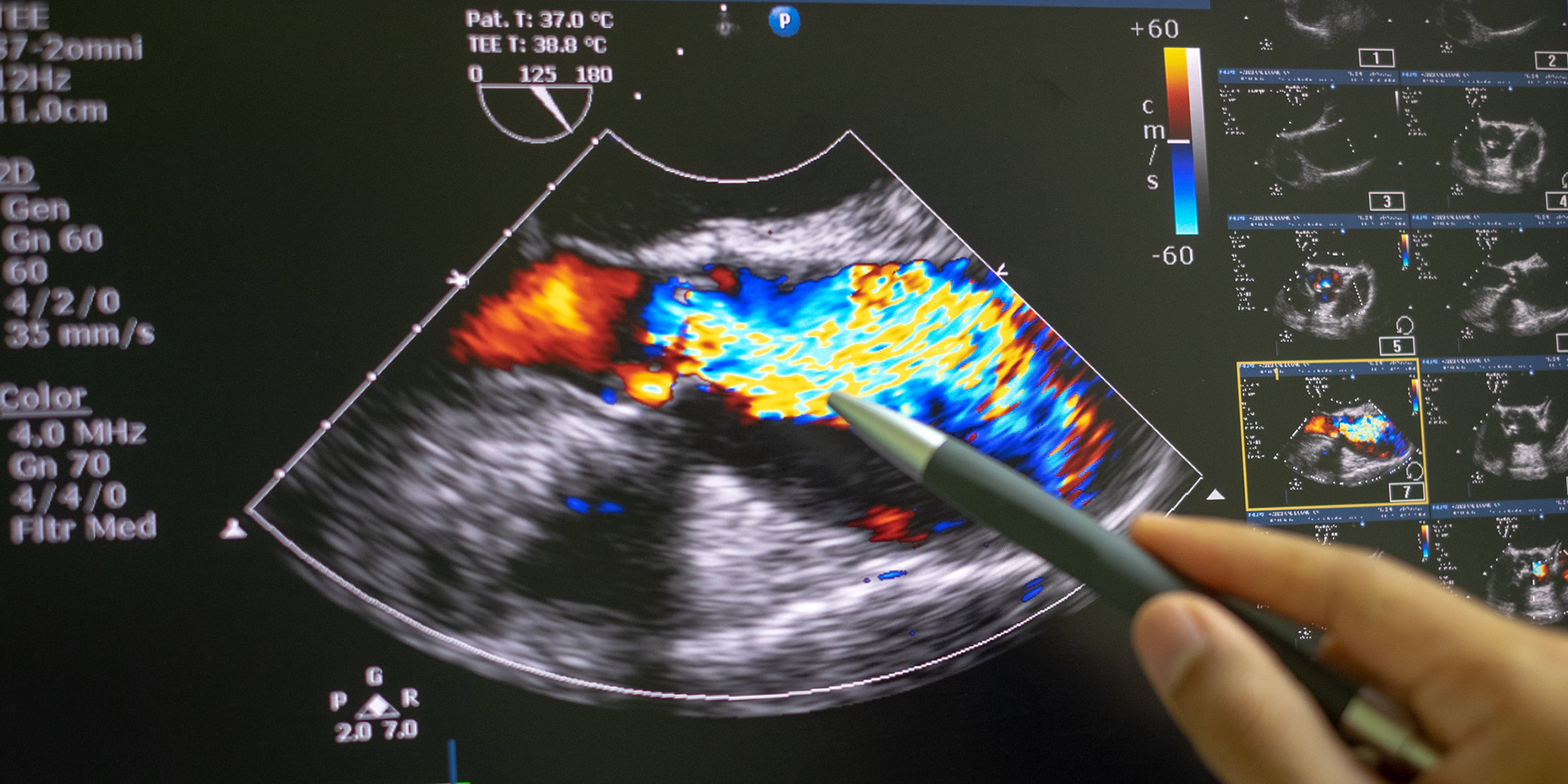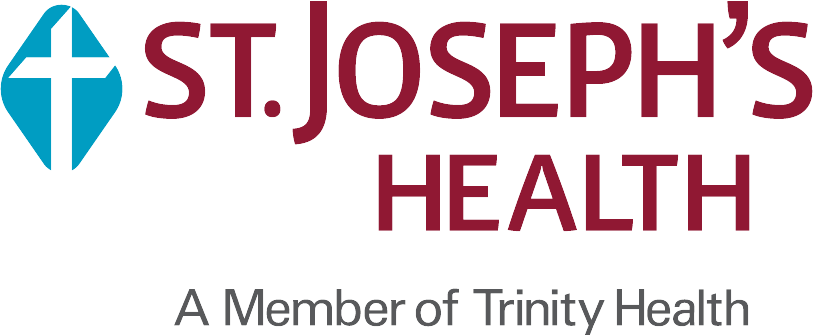School of Cardiac Sonography

Overview
St. Joseph’s Health cardiac sonography program is a highly specialized certificate program that produces graduates who are knowledgeable, compassionate, and responsible healthcare professionals. Graduates of the program are prepared to assist in diagnostic procedures performed in an adult echocardiography setting. Students begin the program by learning the fundamentals of heart function and physiology, as well as concentrating on core, didactic, lab, and clinical cardiovascular courses related to Adult Echocardiography. Specialty areas of the program include evaluation of the heart, its valves and chambers, and associated vessels through the performance of transthoracic echocardiography (TTE), transesophageal echocardiography (TEE), and stress echocardiography (SE).
The 13-month program comprises an initial ten weeks of evening classroom instruction. Classes will be held Monday - Friday, 3:30 pm - 9:30 pm, as scheduled. Instructors will focus on didactic classroom instruction, with a concentration on anatomy, basic equipment operation, and fundamental skill development in cardiac ultrasound. The remaining 46 weeks include 24 hours per week of clinical hands-on instruction at our hospital training sites and one evening, 3:30p-9:30p, of lab instruction.
Students are split into 2 groups for clinical hours:
Group A: Monday, Wednesday, and Friday, 7am - 3:30 pm
Group B: Tuesday and Thursday, 7 am - 3:30 pm; Saturday and Sunday, 7 am - 11 am
Students may rotate their clinical training in several locations, including office and hospital settings. These rotations provide students with a broad range of clinical experiences.
St. Joseph's Health Sponsoring Organization
Our sponsoring organization, St. Joseph Health, hosts an advanced, vast, nationally recognized Cardiovascular Institute.
The many accolades include:
- Ranked among the top 15 hospitals in the US to have cardiac surgery by Consumer Reports and among the top 10% in the nation for cardiac surgery by Healthgrades
- 8th hospital in the nation to receive American Heart Association’s Cardiovascular Center of Excellence Accreditation
- ICAEL accredited Echo lab • Five-Star Recipient for Coronary Bypass Surgery by Healthgrades
- Five-Star Recipient for Valve Surgery by Healthgrades
Experiential Learning
Clinical Internship
The 46-week internship provides hands-on experience at one or more approved medical facilities. After completing the pre-internship coursework, all students begin the internship at St. Joseph’s Hospital. During this time, they enhance and refine skills previously learned, perform complete sonographic examinations in real clinical settings, and advance their knowledge in recognizing anatomy and disease states using a variety of equipment. At the assigned facilities, students work side-by-side with sonographers, physicians, and other health care professionals to learn, develop, apply, and sharpen the necessary skills to perform general echocardiograms. Students’ clinical progress and performance are closely monitored by the program director or and/or clinical supervisor. Additionally, students return to the classroom one evening per week for lectures, presentations, projects, and testing. Students may be eligible to complete a portion of their clinical internships at another approved regional or national medical ultrasound facility with approval of the program director. Graduates of the program will be eligible to sit for CCI certification upon completion of the program. Students wishing to sit for ARDMS certification will need additional clinical hours to be eligible for the exam, which may be completed during employment.
Tuition
$24,000
Applications and Admissions
For consideration to the St Joseph’s Health School of Cardiac Sonography, individuals must present a strong academic and professional background. They need to demonstrate responsibility, confidence, a character of high moral integrity, good interpersonal skills and compassion.
Prospective students must meet one of three available pathways to be considered for the program.
A bachelor’s degree in any field or higher
OR
An associate’s degree in any field and:
- 8 credits or 2 semesters of anatomy and physiology
- 3 credits or 1 semester of college mathematics course
- 1 course in medical terminology
- A minimum of 2.5 cumulative GPA
OR
A high school diploma, or equivalent, AND completion of a minimum of 12-months (or 1200 hours) of training in a health care related field. The program(s) must include clinical time spent providing patient care. Applicable fields include, but are not limited to: registered nurse, physical therapist, occupational therapist, respiratory therapist, LPN, paramedic.
The most competitive candidates will possess:
- A GPA of at least 3.0
- Previous experience in patient care
- Previous experience in cardiology
Curriculum
1-hour credit= 15 hours lecture; 30 hours hands-on/lab
1 clinical hour credit: 45 hrs/semester
Clinical hour: 960 hours (40 weeks -3days/week- 8 hours/day) = 21credit
Program duration: 12 months- 52 weeks
Total Credit: 40 credit (19 lecture + 21 contact)
2 credits
In this class students learn the basic anatomy, physiology, and terminology of the heart. At the end of this course students should be able to understand the function of normal heart and appreciate detailed structures are seeing in images with real anatomy and orientation.
3 credits (2-unit lecture 1-unit lab)
This course is designed to provide students with the opportunity to learn cardiac imaging procedures, sectional anatomy, and patient positions. Standard views, image orientation, ultrasound appearance and measurements will be stressed.
3 credits (2-unit lecture 1-unit lab)
This course addresses how the principles of ultrasound physics are directly applied to the use of ultrasound instrumentation in medical imaging. Transducers, signal production, memory systems, data display, manipulation of controls, and artifacts, are discussed. Throughout the course, the student will integrate previous knowledge of anatomy with ultrasound physics and instrumentation.
3 credits (2-unit lecture 1-unit lab)
This course is a continuation of Sonography Physics and Instrumentation I (DMS-101). It provides a foundation of the basic physical principles of ultrasound and the fundamentals of fluid dynamics, Doppler physics including color, power, and spectral Doppler, quality control, Doppler artifacts, and biological effects. Students will learn to integrate previous knowledge of anatomy, ultrasound physics and instrumentation with Doppler skills and techniques. Development of scanning techniques, use of instrument controls, and production of high-quality diagnostic images utilizing laboratory equipment are stressed.
2 credits
This course will introduce key elements of integrated, high-quality patient care. Through lecture, role-play and hands-on practice, essential aspects of team-based patient care will be explored. Vital skills and behaviors such as professionalism, communication, documentation, workplace safety, patient assessment, patient positioning and transfers, and acute medical situations will be presented. Infection control, medications and their administration, and medical-legal issues will also be examined.
Echocardiography subjects should be cover during clinical course and their hours needed
Global Function
| Systolic function of LV and RV and echocardiographic Evaluation | 3hrs |
| Diastolic function of LV and echocardiographic evaluation | 3hrs |
| Cardiomyopathies (HCM, DCM, RCM) | 3hrs |
| Systemic and Pulmonary Hypertension | 3hrs |
| Ischemic Heart Diseases | 3hrs |
| Total 15hrs=1 credit |
Valvular Diseases
| Aortic Valve | 3hrs |
| Mitral Valve | 3hrs |
| Tricuspid Valve | 3hrs |
| Pulmonary Valve | 3hrs |
| Prosthetic Valve | 3hrs |
| Total 15hrs=1 credit |
Cardiac Emergency
| Aortic Dissection | 3hrs |
| Pericardial effusion and Cardiac Tamponade | 3hrs |
| Complications of Myocardial Infarction | 3hrs |
| Pulmonary Embolism | 3hrs |
| Endocarditis | 3hrs |
| Total 15hrs=1 credit |
Stress and Advance Echocardiography
| Exercise stress echo (treadmill, bicycle…) | 3hrs |
| Pharmacology and pacing stress echo | 3hrs |
| Non-ischemic stress echo | 3hrs |
| Strain echocardiography | 3hrs |
| 3-D & 4-D Echocardiography | 3hrs |
| Total 15hrs=1 credit |
Invasive Echocardiography
| TEE | 4hrs |
| ICE | 2hrs |
| Contrast echo | 3hrs |
| Bubble Test | 2hrs |
| Watchman procedure | 2hrs |
| Cardiac catheterization | 2hrs |
| Total 15hrs=1 credit |
Others
| ECG & Echo | 3hrs |
| Congenital Heart Diseases in Adult | 6hrs |
| Systemic Diseases and Heart | 3hrs |
| Heart Transplant and Intracardiac Devices (VAD, IMPELLA, ECMO…) | 3hrs |
| Total 15hrs=1 credit |
Cumulative hours and Credits: 90hrs = 6 credit
Contact Us
To reach out to the School of Cardiac Sonography contact Danielle Gage at Danielle.gage@sjhsyr.org or call 315-726-7466
